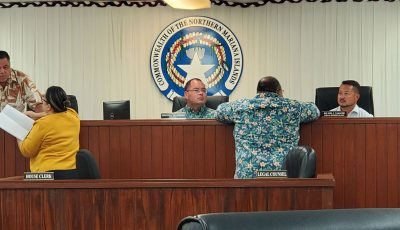Census surveys: Information that we need
By ROBERT GROVES
The Washington Post
Modern economies run on statistics; businesses, governments and households base their decisions on them. Our world, facing great economic uncertainty, needs rich economic statistics. With them, we know how well the economy is providing for the public well-being. With them, businesses can identify opportunities for growth and new markets, building jobs with each data-based decision.
All developed countries have some method of generating timely statistics on basic social and demographic attributes of neighborhoods, small communities and counties. With them, we know whether city services match needs. With them, we know whether success rates of our schools are changing.
The central statistical tool for such small areas in the United States is the American Community Survey (ACS). A more efficient way to gather detailed data than the old “long form” of the decennial census, the ACS annually costs about 77 cents per person in the country. The economic census, a tool critical to gathering U.S. economic statistics, costs even less, 41 cents per person. You spent more than that to buy this newspaper.
Unfortunately, the appropriations bill considered by the House of Representatives eliminates both programs. In a sense, these programs are bridges that support decisions as the United States travels forward. Were this legislation enacted, it would dismantle our data bridge to our future.
Without the economic census, important survey coverage of the economy that informs such measurements as gross domestic product would be threatened. We can’t misread changes in the economy at a time when it is paramount that all of us have solid facts.
Without the ACS, communities and businesses will make riskier decisions about where to place schools, hospitals and retail outlets. In short, without these data bridges, the road ahead will become more difficult.
I have directed the U.S. Census Bureau since 2009, after decades of working in academic research institutes. My colleagues at the bureau are revolutionizing how the highest-quality statistics can be produced as cheaply as possible. One of the ways we are saving money is using the ACS to build a more efficient 2020 Census. We also plan to save money by adding an Internet option to the ACS in January.
The statistics from the economic census and the ACS depend on the participation of businesses and households. Each does its part by providing answers to the questions; the agency assembles the answers to create the statistics. Every Congress, starting with the first Congress, has deemed the resulting statistics so important that participation is mandated by law.
The ACS is fully funded in the Senate version of the appropriations bill. A separate amendment to the House appropriations bill, however, would make participation in the ACS voluntary.
A voluntary ACS would cost more taxpayer money to produce the same-quality statistics, at a time when the Census Bureau is trying to produce better statistics with less money. Given that change of design, we do not know how much more would have to be spent to give communities high-quality estimates from a voluntary version of the ACS. Research needs to be done before such a drastic change is made.
Since the House voted in May to eliminate the American Community Survey, effectively dooming the economic census, some who had supported the cuts have said publicly that they may have undervalued these tools’ impact on individual businesses and communities and their ability to help steer the country back to economic prosperity. Others have said they meant only to “send a message.” Their message has been heard, and we understand their concerns. We can improve these surveys, but only if we keep them funded while we research needed reforms.
A strong country is strong because it knows itself. Statistical information is central to that strength; we need stronger data bridges, not to dismantle those we are now using.
Robert Groves is director of the U.S. Census Bureau.



























